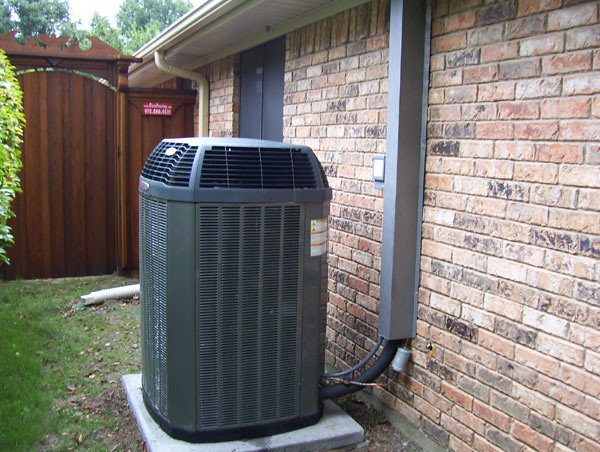When it comes to choosing the right air conditioning system for your home, the decision between Trane and Pioneer can be a challenging one. Both brands are renowned in the HVAC industry for their quality products, but there are several factors to consider when determining which one is the better choice. In this comprehensive guide, we’ll delve into the technical details and expert-level insights to help you make an informed decision.
Price Comparison: Trane vs. Pioneer
Trane is generally more expensive than Pioneer, with a difference of around $1,500 for similar models. This price gap can be attributed to Trane’s reputation for producing high-quality, durable products and their extensive warranties.
Trane’s air conditioning units are engineered with premium components and advanced technologies, which contribute to their higher price point. For instance, Trane’s compressors are designed to withstand extreme temperatures and operate with exceptional efficiency, ensuring long-lasting performance. Additionally, Trane’s coils are made from corrosion-resistant materials, further enhancing the unit’s durability.
In contrast, Pioneer’s air conditioning units may utilize more cost-effective components, resulting in a lower initial investment. However, it’s essential to consider the long-term operational costs and the potential need for more frequent repairs or replacements, which can offset the initial savings.
Energy Efficiency: Trane vs. Pioneer
 Image source: Flickr by Jackie Bese
Image source: Flickr by Jackie Bese
One of the key factors in determining the overall efficiency of an air conditioning system is the Seasonal Energy Efficiency Ratio (SEER) rating. Trane consistently outperforms Pioneer in this regard, offering air conditioning units with impressive SEER ratings.
Trane’s XR15 model, for example, boasts a SEER rating of 15, which ensures efficient cooling and significant cost savings on your energy bills. In comparison, Pioneer’s units typically have lower SEER ratings, around 14 or 15.
Trane’s advanced compressor technology, variable-speed fans, and innovative coil designs all contribute to their superior energy efficiency. These features allow Trane units to operate with less energy consumption, resulting in lower utility bills for homeowners.
Noise Level Comparison: Trane vs. Pioneer
Noise level is an important consideration, especially for homeowners who prioritize a quiet living environment. Trane air conditioning units are renowned for their whisper-quiet operation, with some models producing as little as 57 decibels of sound.
Trane’s engineers have developed innovative sound-dampening technologies, such as compressor blankets and advanced fan blade designs, to minimize the noise generated by the unit. This attention to detail ensures a peaceful and uninterrupted indoor experience.
In contrast, the noise levels of Pioneer air conditioning units are not explicitly stated in the available information. However, it is mentioned that Trane offers comparatively quiet heat pumps, suggesting that Trane may have an edge in this category as well.
Warranty Comparison: Trane vs. Pioneer
When it comes to warranties, Trane stands out with its comprehensive coverage. Trane provides a 10-year parts warranty and a 12-year compressor warranty, which is generally longer than the warranties offered by Pioneer.
Trane’s extended warranty periods demonstrate their confidence in the durability and reliability of their products. This commitment to quality and customer satisfaction is a significant factor in Trane’s reputation and can provide peace of mind for homeowners.
Pioneer’s warranty information is not as readily available, but it is likely that their coverage may not match the extensive protection provided by Trane. This difference in warranty terms can be a crucial consideration when choosing between the two brands.
Product Variety: Trane vs. Pioneer
Trane offers a wide range of HVAC products, catering to a diverse set of needs and preferences. Their product lineup includes air conditioners, heat pumps, furnaces, air handlers, cooling towers, chillers, heating equipment, generators, thermostats, air cleaners, and ventilation systems.
This extensive product range allows Trane to provide tailored solutions for various home sizes, climates, and specific requirements. Homeowners can find the perfect Trane unit that fits their needs, whether it’s a high-efficiency central air conditioner, a ductless mini-split system, or a comprehensive HVAC system.
In comparison, the available information suggests that Pioneer’s product range is more focused on mini-split systems, which are a popular choice for homes or spaces that require zoned cooling and heating. While mini-splits can be an excellent solution in certain scenarios, Trane’s broader product portfolio may offer more flexibility and options for homeowners.
Conclusion
When comparing Trane and Pioneer air conditioning systems, it’s clear that Trane offers a more advanced and efficient HVAC solution. Trane’s focus on energy efficiency, noise reduction, and product durability, combined with their extensive warranty coverage, make them a compelling choice for homeowners.
However, the higher price point of Trane units may be a limiting factor for some consumers. It’s essential to carefully evaluate your specific HVAC needs, budget, and personal preferences to determine the best fit for your home.
Ultimately, the decision between Trane and Pioneer will depend on a variety of factors, and it’s recommended to consult with a qualified HVAC professional to ensure you make an informed choice that meets your home’s cooling and heating requirements.
